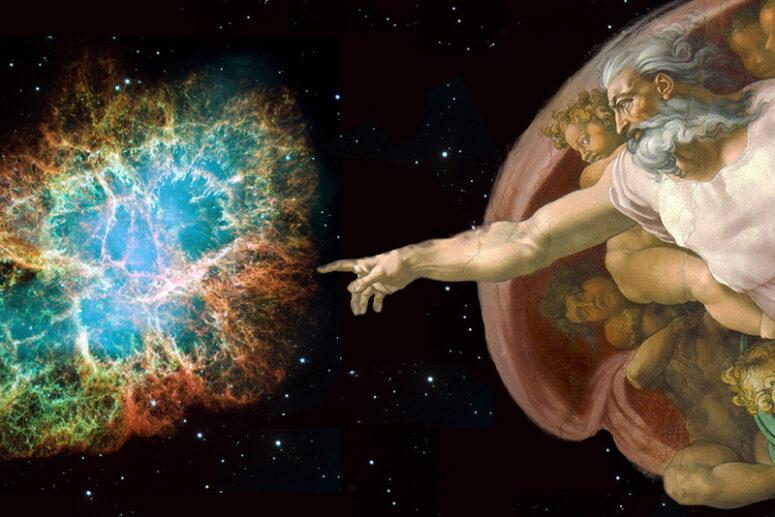
If you have heard that: 1) scientific and religious worldviews are irreconcilable; 2) religion and the Church have hindered scientific progress; 3) science is driven by atheists; 4) science refutes the existence of God; 5) countries with fewer believers are more developed economically, and could not think of an answer, then this article is for you.
1. Is it true that a scientific worldview is incompatible with a religious one?
A worldview is a set of beliefs on the main existential issues (the essence of being, the existence of God, the meaning of life, understanding of soul, eternity, good and evil, etc.) Science is a developing system of human knowledge about the world. Science operates with facts that do not carry any worldview connotation. This makes the concept of a scientific worldview purely nominal.
For example, we can define the role of mankind in nature and name the biological processes allowing a person to live, but this leaves no room for a specific view or attitude. Philosophy and religion can assess these phenomena from various perspectives, but not science. Accepting or denying these facts makes a person’s worldview either scientific or unscientific.
If a person says, “the world is arranged according to certain laws,” there is no worldview here, but a dry scientific fact. If he adds that these laws were established by God, then his worldview is theistic, if he denies this statement, then his worldview is atheistic. But that does not make it any more scientific. So, the role of worldview is to assess certain facts. Science can provide these facts, but not evaluate them.
2. Is it true that religion and the church have hindered scientific progress?
Libraries, scriptoria, as well as the first public schools in history have been built at monasteries since the 6th century. Monasteries could be the only links between remote European regions and the civilized world. The monastic schools taught reading, writing, counting, singing, church and secular literature. It must also be said that the works of ancient authors have come down to us only thanks to the work of monastic scribes, because in antiquity there was a kind of a memory cult due to which writings were memorized, and not copied.
The very concept of a university is an invention of the Christian civilization. In antiquity, a school of a certain philosopher was the highest possible education. Many known universities were opened with the efforts of the clergy. The Sorbonne University of Paris was founded by a priest, the Cambridge Peterhouse college was opened by a bishop, and the Complutense University was founded with the help of a cardinal. There are many such examples, and finding them presents no difficulty . About 70% of the 81 universities existing in Europe by the 16th century, were founded through the papal bull.
3. Is it true that science is driven by the efforts of atheists?
Yes, indeed, there are great scientists among atheists. But is this the merit of atheism? If so, what about the scholarly believers? B. Pascal, I. Newton, M. Lomonosov, L. Galvani, A. Ampere, A. Volta, G. Mendel, N. Copernicus, L. Pasteur, D. Mendeleev, I. Pavlov, E. Schrödinger, L. Broglie, C. Towns, P.T. de Chardin were believers, some were even tonsured or ordained. These are only a few well-known names.
Statistics on the religiosity of Nobel laureates for the 20th century show that 89.5% of them considered themselves to be believers.
4. Is it true that scientific theories disprove the existence of God?
Scientific theories as such cannot refute the existence of God, since they can be directed exclusively towards objects of the physical world. God is immeasurable and cannot be an object of scientific study.
However, sometimes we see scientists giving their own unscientific interpretations of scientific theories. Let’s take evolution theory as the most “atheistic” one. If it contradicted the idea of God, there would be no versions of it such as theistic evolutionism or evolutionary creationism. Indeed, these interpretations of this theory are unscientific, since the theory itself does not imply the influence of God in the process of evolution. But neither does it imply His absence, which makes the atheistic interpretations equally unscientific.
The Big Bang theory is probably the second after the evolution theory to have “suffered” from atheistic ideology. Although the arguments above are also applicable in its case, one more circumstance makes it a special case. The author of the Big Bang theory Georges Lemaitre was a Catholic priest. His discoveries did not interfere with his faith in any way, which is also true for many other scientists, in particular, those mentioned above. Would scientists have retained their faith if science contradicted it?
5. Is it true that countries with a smaller number of believers are more economically developed?
If we are looking at the rich European countries with a large percentage of non-believers (Great Britain, Sweden, the Netherlands, etc.), then we must understand that these countries were also economically developed one or two hundred years ago, when the percentage of atheists in them was minimal.
If you open the list of the world’s most developed countries, you will see quite religious states there: USA (78% Christians, the world’s 1st GDP), Germany (68% Christians, 4th place), India (79% Hindus, 5th place), Italy (83% Christians, 8th place ), etc. (statistics according to the PBS & WGBH Educational Foundation).
If we look at the countries with a high percentage of non-believers, we will see that many of them have underdeveloped economies: North Korea (the percentage is difficult to establish, according to various sources from 72 to 99% of atheists, 213rd place in terms of GDP), Estonia (60% of non-believers, 98th place).
This shows that there is no significant relationship between the number of believers in a particular country and its economic well-being.
Many false accusations and facts are used against faith and the Church. For example, the myth about Giordano Bruno being persecuted for his scientific activity, comparing venerating icons to idolatry, the myth of the contradiction between evolution theory and faith in the Creator, etc. Unfortunately, these myths can be taken by believers at face value and spread in the Church. A Christian needs to be aware of such delusions so as not to fall under the temptation presented by them and to avoid misleading others.




